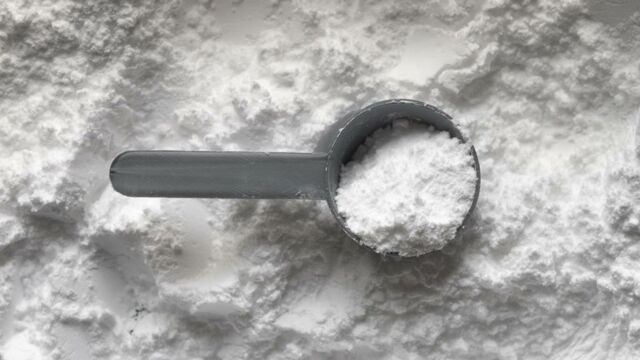Having gained considerable traction on Instagram and TikTok, dry scooping is the new fitness and nutrition trend that you should absolutely avoid, according to doctors.
Discover our latest podcast
What is dry scooping?
This practice involves eating powdered supplements, such as protein powder or creatine, neatly without diluting them in a liquid as it is typically recommended by manufacturers. Health experts scanned through social media platforms to find hundreds of videos in which micro and established influencers advocated for dry scooping.
Out of about 100 videos analysed, only 8 showed an accurate use of the performance enhancing powders. Another 30 videos featured dry scooping and amassed, collectively, a whopping 8 million likes putting more impressionable audiences at risk.
Why is dry scooping dangerous?
Failing to dilute these powders, which have concentrated amounts of caffeine in one single scoop, can lead to potentially life-threatening heart-related side effects. These undesired effects include, palpitations and extra or missed heart beats. Experts at the Cohen Children's Medical Center in New York explain that a surplus in caffeine intake can result in:
an increase in blood pressure and heart rate, [can potentially lead] to disturbances in heart rhythm.
Further, they also say that accidentally inhaling the powder into the lungs could cause choking, infections and even pneumonia. Nutrition scientist Bridget Benelam, from the British Nutrition Foundation, said:
Pre-workout powders typically contain caffeine along with other ingredients such as creatine, amino acids and vitamins. Although there is some evidence that caffeine may improve sports performance in some cases, these studies are typically done in athletes, and so it's not clear how relevant this is for the wider population.
And added:
The levels of caffeine in these products vary from the equivalent of about one to over three cups of filter coffee, if made up according to the manufacturer's instructions. So, there is a risk of over-consuming caffeine, especially if using more than once a day, or just consuming the powder, where you may consume more than the recommended amount.















